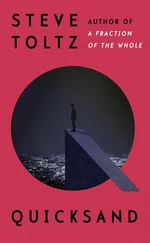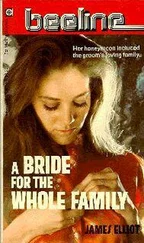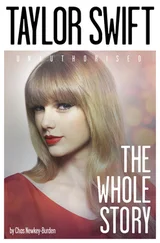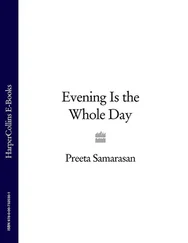But what thrilled me most about my uncle was that he spoke of the real world- of prisons and bloodbaths and sweatshops and famines and slaughterhouses and civil wars and kings and modern-day pirates. It was a wonderful relief to be out of the philosophical realm for a change, the oppressive, suffocating universe of Dad’s thought culs-de-sac and thought outdoor toilets. Terry talked of his experiences in China, Mongolia, Eastern Europe, and India, his forays into remote and dangerous territories, the murderers he’d met in dingy gambling joints, how he picked them to join the democratic cooperative of crime. He talked of his reading and how he started with all of Dad’s favorite books, how he’d struggled through them at first, how he’d fallen in love with the printed word, and how he read voraciously in deserts and jungles, on trains and on the backs of camels. He told me of the moment he decided to begin his prodigious eating (it was in the Czech Republic, a cold potato dumpling soup). He saw food as his link to humanity, and while traveling, he was invited to family dinners wherever he went; he ate ritualistically with all races, tasting every culture and custom across the globe. “To be fat is to love life,” he said, and I realized that his belly wasn’t an impenetrable fortification against the world but a reaching out to embrace it.
Most nights whores entered the house, sometimes two or three together. Their professionalism melted away at the sight of Terry’s enormous body, their famous Thai smiles morphing into grimaces on their young, fresh faces. The rest of us couldn’t help but feel sorry for these prostitutes as they led Terry to the bedroom like zookeepers conspiring to tranquilize an agitated gorilla. By the time they emerged though, he was vindicated; the girls were happy, exalted. They came out looking strengthened by the experience- rejuvenated, even. And he had his favorite whores too, ones who came back night after night. They often ate with us, and they never stopped smiling and laughing. You couldn’t deny that he loved them passionately. He showered them with affection and attention, and I really believed he didn’t feel icky that they went off to fuck and suck other men. His love really was uncomplicated. It was love without possessiveness. It was real love. And I couldn’t help comparing his love for the prostitutes with my love for the Towering Inferno, which was so bogged down in the issue of ownership, it could easily be argued that what I’d felt for her didn’t even resemble love at all.
***
Dad spent the first few months in Thailand remote and surly. On the rare occasions we risked outings and sat in restaurants frequented by Australian tourists, his name would pop up in their conversations, and hearing himself disparaged in the third person nauseated him. He often bought the Australian papers and read them while grinding his teeth, and afterward he wrote long letters to the editors, letters I begged him not to send. As for me, I stayed a mile away from the papers and swore to do so for all time. I’ve come to the conclusion that reading the newspaper is sort of like drinking your own piss. Some people say it’s good for you, but I don’t believe it.
Maybe the hate waves from Australia finally took their toll, because Dad started dying again. It was clear that the cancer had reemerged in his lungs and was spreading. Over a period of a few months, his body became the centerpiece in a theater of horror. It looked as if he were being eaten from the inside out. He moved gruesomely from flesh to bone. He became pale and looked as though his essence had been suffused with methane. Eventually he avoided mirrors altogether. He stopped shaving and wandered around Terry’s place like a castaway, so thin he was swimming in his clothes. Then, just as suddenly, his trajectory toward death plateaued. He didn’t get any better, but he stopped getting worse. It was clear to me that he was waiting for something, waiting to do something, and he wasn’t going to die until he did it. There’s a lot to be said for the power of obstinacy. People often will themselves to stay alive; cripples walk and dead men get erections. Look around. It happens.
At first Terry and Caroline did nothing but plead with him to see doctors and begin another course of chemotherapy, but Dad refused. I knew it was doubtful that I could persuade him to do anything, but I couldn’t help thinking of Anouk and her obsessive belief in the powers of meditation. I tried to convince him that the possibility remained that by extreme efforts of concentration he might vanquish the cancer on his own. To humor me, he tried one afternoon. We sat together at the foot of the Buddha. I instructed him that superhuman efforts of the most intense form of mind control were required, but Dad was never able to clear his mind of skeptical thoughts. In the middle of meditation, he opened one eyelid and said, “You know what Mencken said about the human body? He said this: ‘All the errors and incompetencies of the Creator reach their climax in man. As a piece of mechanism he is the worst of them all; put beside him, even a salmon or a staphylococcus is a sound and efficient machine. He has the worst kidneys known to comparative zoology, and the worst lungs, and the worst heart. His eye, considering the work it is called upon to do, is less efficient than the eye of the earthworm; an optical instrument maker, who made an instrument so clumsy would be mobbed by his customers.’ ”
“That sounds true,” I said.
“Well, then- what makes you think meditation can override my body’s congenital frailty?”
“I don’t know. It was just an idea.”
“It’s a useless idea. Remember how Heraclitus said a man’s character is his fate? That’s not true. It’s his body that is his fate.”
Dad pulled himself up, using the Buddha’s toes as leverage, and staggered back toward the house. Caroline was standing at the door, watching us.
“How did it go?” I heard her ask.
“It was great. I’m healed. I’ll live for another several billion years. I don’t know why I never tried it before.”
Caroline nodded wearily, then accompanied Dad back inside.
Poor Caroline. On top of her role as primary caregiver, she had her own problems. She surprised herself by succumbing to emotional outbursts and crying fits. She’d been profoundly shaken by the events in Australia. She had always seen herself as somewhat of a thick-skinned, carefree, unself-conscious woman who loved life and never took any aspect of it seriously, least of all public opinion. But the outpouring of hatred focused on her had a serious and permanent destabilizing effect. She had become cautious and introverted; she saw this difference and no longer liked herself. On top of that, the reappearance of Terry, her childhood love, had called her marriage to Dad into question. I wasn’t sleeping well, so I was often witness to their midnight soap operas. Caroline would go bleary-eyed into the kitchen to make herself a cup of tea. Dad would sneak down the hallway after her and peer around the doorway. His soupy breathing always gave him away.
“What are you doing?” she’d ask.
“Nothing. Stretching my legs.”
“Are you spying on me?”
“I’m not spying. I missed you, that’s all. Isn’t it romantic?”
“What do you think I’m going to do? Do you think I wait until you’re asleep and then…what?”
“What do you mean?”
“You know what I mean!”
I tell you, you’ve never heard so much subtext in your life!
Caroline and Dad shared the bedroom next to mine. Often I’d hear the three a.m. opening of sliding doors. I’d sit up in bed and look out my window at the slim figure of Caroline crossing the lawn to the reclining Buddha. In the moonlight I could see everything. Sometimes she’d rest her head on Buddha’s shoulder, and if the night was still and the birds asleep, I could make out the soft sound of her voice drifting into my room. “He’s fat and disgusting. And a criminal. He’s a fat, disgusting criminal. And he’s dead. He’s fat and he’s dead and he likes whores.” Once I heard her say, “And who am I? Look at my body. I’m no prize.”
Читать дальше












